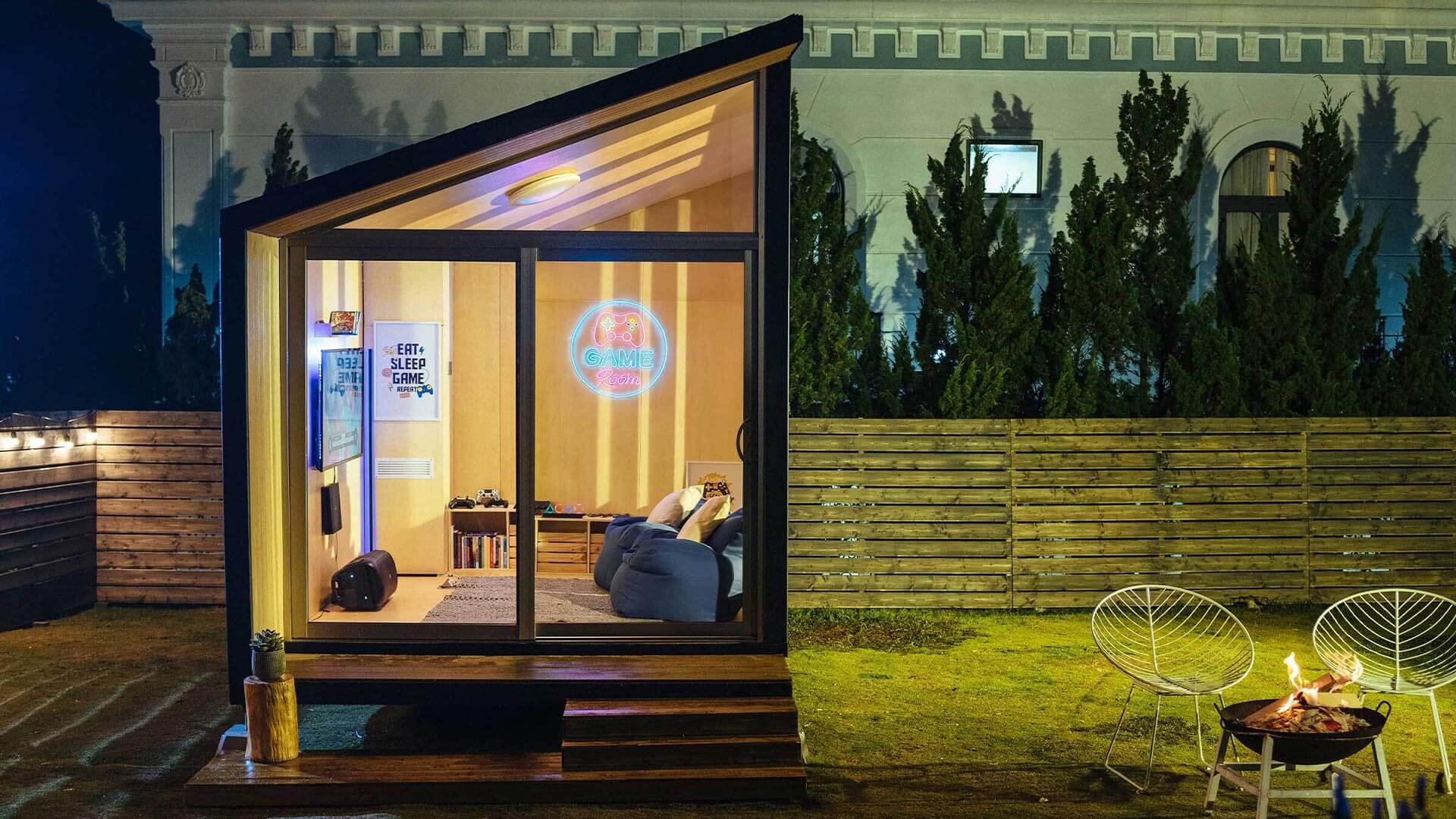
King County ADU Regulations: Requirements, Costs & Setbacks
Table of Contents
Accessory Dwelling Units (ADUs) are becoming an increasingly popular solution for homeowners in King County looking to maximize their property’s potential. Whether you want to create a separate space for family members or add rental income, understanding King County ADU regulations is essential before starting your project. This guide covers King County ADU requirements, permit processes, design options, and King County shed setback requirements to ensure compliance with King County ADU law.
What Is an ADU?
An Accessory Dwelling Unit (ADU) is a self-contained residential unit that exists on the same lot as a primary home. ADUs can be attached to the main house, built within an attic or basement, or detached as a standalone structure. Commonly referred to as granny flats, backyard cottages, or in-law suites, ADUs provide flexible living arrangements while increasing housing options in King County.
For homeowners considering modular homes in Washington State, ADUs offer a more compact and versatile alternative. Understanding what an ADU means in real estate can clarify its unique advantages, especially when comparing ADUs vs. guest houses as potential living spaces. Additionally, if you're exploring JADU vs. ADU, knowing their key differences can help determine the best fit for your property.
When planning the interior, take inspiration from these ADU interior ideas to create a functional and stylish space.
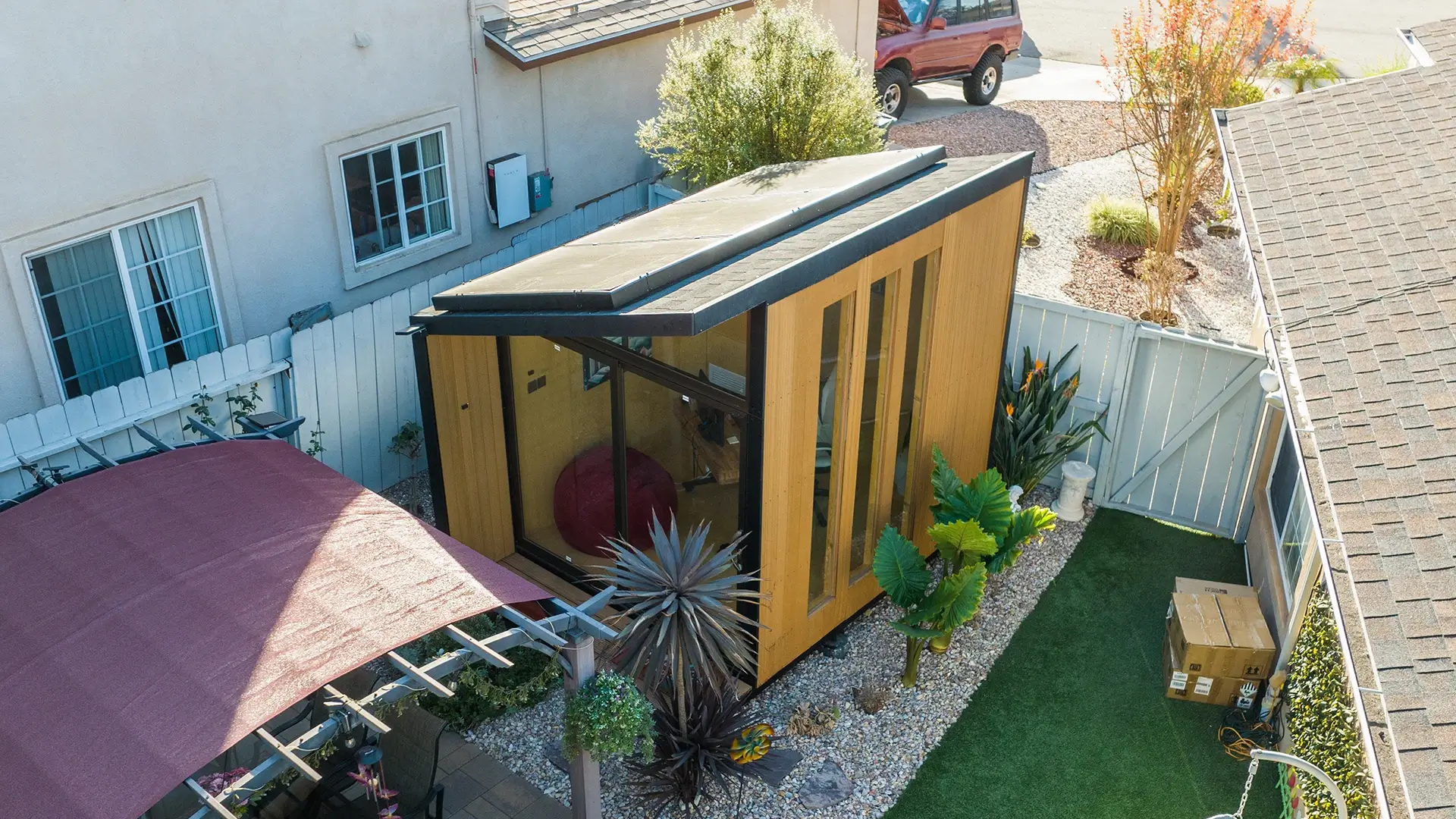
King County ADU Requirements and Regulations
King County allows one ADU per primary residence, but specific zoning laws determine where and how ADUs can be built. Here are the key requirements:
1. Zoning and Lot Size
- ADUs are permitted on single-family lots.
- Detached ADUs (DADUs) are allowed if the lot is at least 3,200 square feet in urban areas or meets rural zoning minimums.
- Properties in the F zone (forestry) are not eligible for ADUs.
2. Size and Height Limits
- ADUs must not exceed 1,000 sq. ft. of heated floor area and 1,000 sq. ft. of unheated space.
- If built within a basement or attic, the size limit does not apply.
- Detached ADUs must comply with King County height restrictions.
3. Parking and Entrances
- No additional off-street parking is required for an ADU.
- If the ADU is attached to the main house, only one entrance can face the street.
4. Occupancy Rules
- Either the primary home or the ADU must be owner-occupied.
- Immediate family members, including spouses, children, and parents, can reside in the ADU without the owner present.
5. Permitting and Legal Notices
- A permit application must be filed with King County before construction begins.
- Homeowners must record a legal notice stating that the ADU is an accessory unit, which remains attached to the property deed.
King County Shed Setback Requirements
For homeowners considering a detached ADU, it’s important to understand King County shed setback requirements to avoid zoning violations. These setbacks vary based on zoning and property size:
- Urban residential lots: Detached ADUs must be set back a minimum of 5 feet from side and rear property lines.
- Rural residential lots: Setback distances depend on lot size but typically range from 10 to 20 feet for side and rear yards.
- Street-facing setbacks: ADUs must maintain the same front yard setback as the primary residence.
Before starting construction, check with King County to confirm setback regulations for your specific property. If you're planning an ADU in other parts of Washington, it's also useful to understand ADU regulations in Seattle and how they differ from tiny home regulations in Spokane.
Beyond setbacks, homeowners should also be aware of ADU bathroom requirements to ensure compliance with plumbing and layout standards. Additionally, ADU foundation requirements play a crucial role in determining structural stability, particularly for detached ADUs.
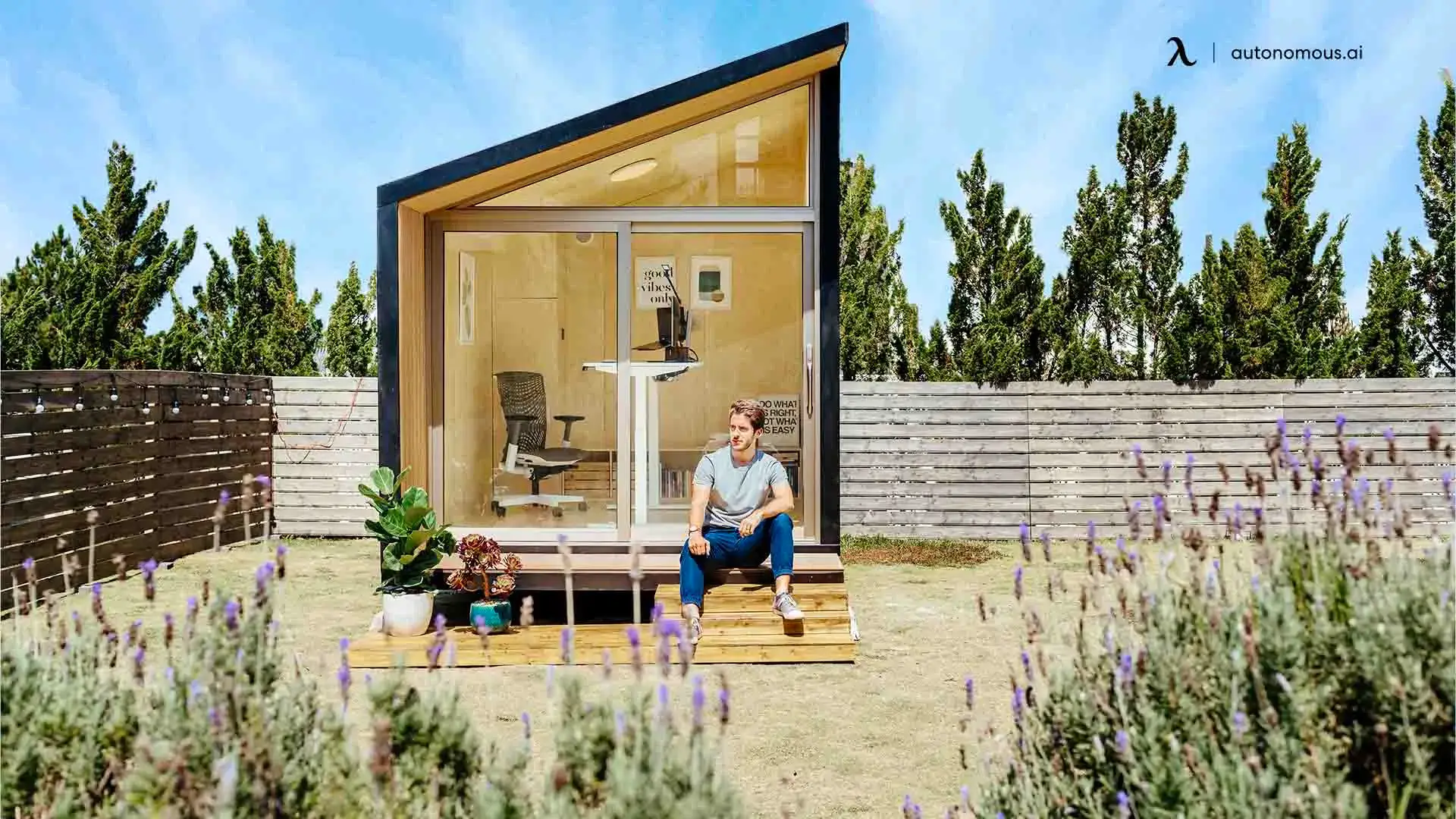
Cost of Building an ADU in King County
Building an ADU involves several cost factors, including permits, materials, labor, and design choices. If you're trying to estimate your budget, understanding the ADU cost per square foot can help you plan more effectively based on size and construction type. Here’s a rough breakdown:
Cost Factor | Estimated Price |
Permits & Fees | $5,000 – $15,000 |
Site Preparation | $10,000 – $25,000 |
Construction (Attached ADU) | $80,000 – $150,000 |
Construction (Detached ADU) | $120,000 – $300,000 |
Prefab ADU | $50,000 – $150,000 |
Financing Options:
- Home Equity Loans: Many homeowners use home equity to finance ADU construction.
- Transferable Development Rights (TDRs): Available for rural property owners seeking zoning flexibility.
How to Get an ADU Permit in King County
To legally build an ADU, follow these steps:
- Verify Eligibility: Check zoning and setback rules for your lot.
- Submit Plans: Apply online at MyBuildingPermit.com under "King County | Building | Single Family Residential | New Construction | Accessory Dwelling Unit."
- Public Health Approval: If your property is on septic, additional health reviews are required.
- Obtain Permits: Pay required fees and receive approval before starting construction.
- Schedule Inspections: Compliance checks must be completed before occupancy.
For a broader understanding of the permitting process in different locations, check out this guide on how to get an ADU permit to ensure you meet all requirements before starting your project.
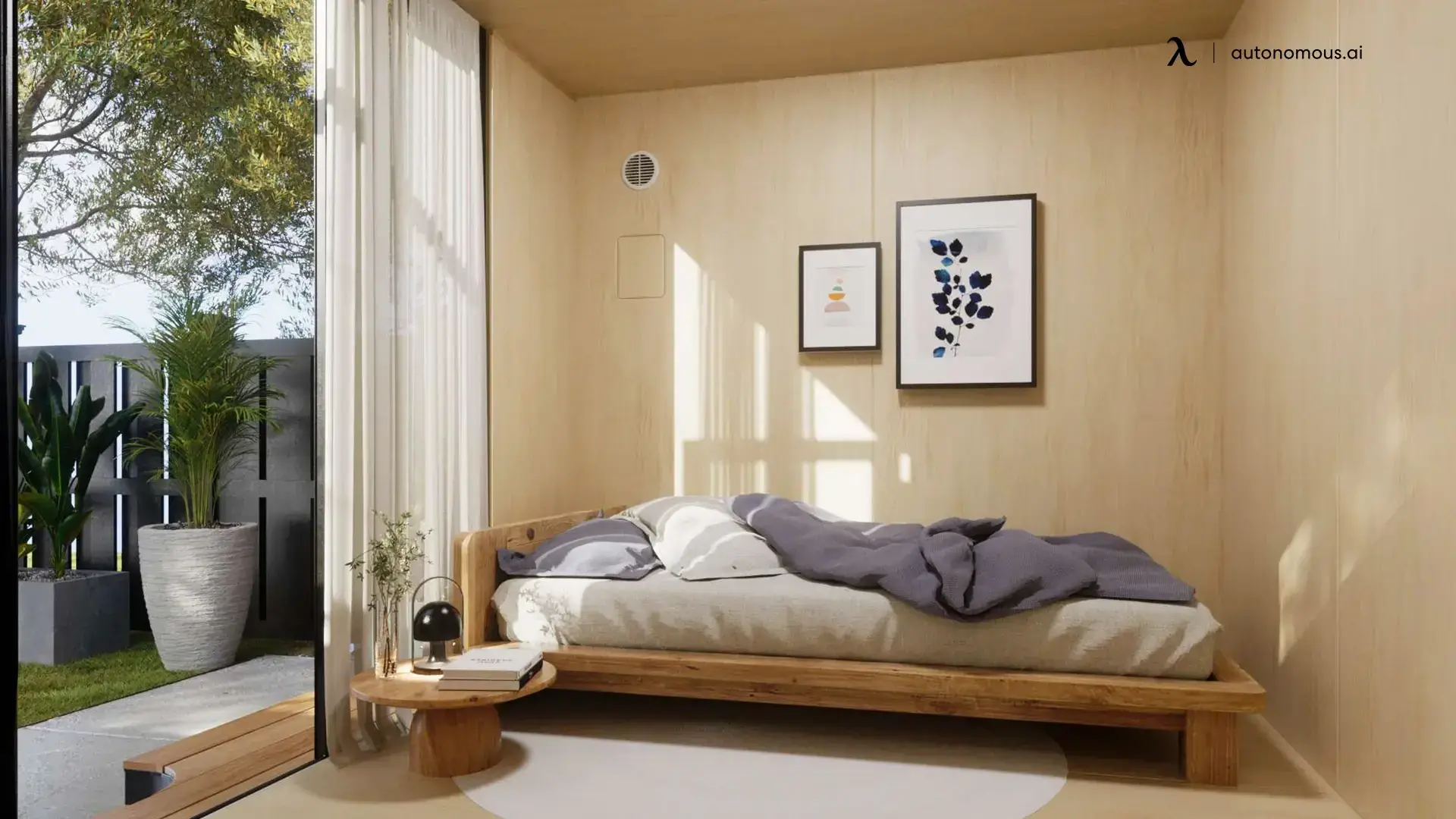
Autonomous WorkPods: A Permit-Free ADU Alternative
Autonomous WorkPods stand out as a game-changing solution for homeowners looking for an alternative to traditional ADUs. Unlike conventional accessory dwelling units that require lengthy permits, zoning approvals, and construction, these pods are designed to be permit-free in most areas, making them a hassle-free option for adding functional space to your property.
Instant Space Without the Red Tape
Traditional ADU projects often come with permit delays, zoning restrictions, and unexpected costs. The WorkPod bypasses these obstacles by offering a pre-built, plug-and-play solution that requires no major modifications to your property. This makes it ideal for homeowners who need a quick, compliant alternative to traditional prefab additions to homes or prefabricated cottages.
For those looking for permit-free ADUs, the WorkPod provides a hassle-free way to add functional space without dealing with the complexities of zoning approvals and lengthy construction timelines.
Multi-Purpose Use
While marketed primarily as a work-from-home solution, these pods can serve a variety of functions—from a private studio or creative space to a guest retreat or even a personal gym. The WorkPod Versatile model, for example, is designed for both work and relaxation, accommodating a wider range of lifestyle needs beyond just office use.
For those looking for a dedicated workspace indoors, an indoor office pod can provide a quiet, distraction-free environment. If you prefer a freestanding workspace, a studio office shed or tiny office shed can transform your backyard into a productive retreat. Additionally, a prefab home office is a great option for those wanting a modern, fully-equipped workspace without the hassle of traditional construction.
Minimal Disruption, Maximum Value
Unlike standard ADU construction, which can take months of labor and significantly disrupt your property, WorkPods arrive fully assembled and can be installed within a matter of days. This is a huge advantage for homeowners who want to expand their living space without dealing with months of on-site construction noise and disruption.
For those seeking a quiet, distraction-free environment, a soundproof office pod for home ensures maximum focus and productivity. Additionally, if you’re planning to enhance your pod’s aesthetic and functionality, explore these small shed office interior ideas to create a comfortable and inspiring workspace.
Off-Grid Capability
The WorkPod Solar takes things a step further by offering energy independence, making it an excellent option for those looking to reduce their reliance on the grid. With its integrated solar panels and battery storage, this model is perfect for off-grid work setups, eco-conscious homeowners, or remote locations where power access is limited.
To enhance your off-grid setup, consider adding a solar heater for your shed to maintain warmth during colder months. A solar fan for sheds can also help regulate airflow and keep the interior cool in the summer. Additionally, a solar shed dehumidifier is useful for maintaining air quality and preventing mold buildup.
If you're considering a DIY solar setup, use this solar power DIY for shed to determine the energy needs of your WorkPod. For those looking to expand their off-grid system, a solar panel for a small house can further enhance energy efficiency and sustainability.
Aesthetic and Functional Design
Most backyard ADU options tend to be generic prefab boxes, but WorkPods are designed with aesthetic appeal and modern functionality in mind. The soundproofing, integrated lighting, and ergonomic design make them not just another shed—but a fully functional working environment.
A Cost-Effective Alternative to Traditional ADUs
Building an ADU from scratch typically costs $100,000 to $300,000 when factoring in permits, materials, labor, and utility hookups. WorkPods offer a far more affordable solution while still providing a high-quality space with built-in electrical systems and customizable interiors.
Who Are WorkPods Best For?
Remote workers & entrepreneurs needing a separate office space away from home distractions, making a backyard office an ideal solution.
Freelancers & creatives looking for an inspiring, dedicated workspace, whether it's a backyard music studio or a backyard art studio.
Homeowners who want extra space without the hassle of an ADU permit, with options like a she shed for relaxation or a man cave shed for personal projects.
Minimalists & eco-conscious buyers seeking a compact, sustainable structure, which could double as a backyard gym shed for a healthy lifestyle.
Property owners in high-regulation areas where ADUs are difficult to approve, making a gaming shed or a backyard reading room an appealing alternative.
Autonomous WorkPods offer a modern, efficient, and flexible alternative to traditional ADUs. Whether you're looking for a home office, creative studio, or guest retreat, these units provide a fast, cost-effective, and aesthetically appealing solution that sidesteps the usual permit roadblocks and construction delays. If you're considering an ADU but don’t want to deal with the complexity and high costs, a writing room or multi-purpose WorkPod could be the perfect answer.
FAQs
1. Can I build more than one ADU on my property?
No, King County only allows one ADU per primary residence.
2. Are ADUs subject to property tax increases?
Yes, building an ADU can increase your property’s assessed value, leading to higher property taxes.
3. Do I need additional utility hookups for an ADU?
Yes, your ADU may need separate utility connections for water, sewer, and electricity, depending on its location.
4. Can I convert my garage into an ADU?
Yes, garage conversions are permitted as long as the structure meets King County ADU law regarding size, safety, and zoning.
5. What are the rules for using an ADU as a short-term rental (e.g., Airbnb)?
Short-term rental regulations vary, and some areas restrict ADUs from being used as vacation rentals. Check with local authorities before listing an ADU on platforms like Airbnb.
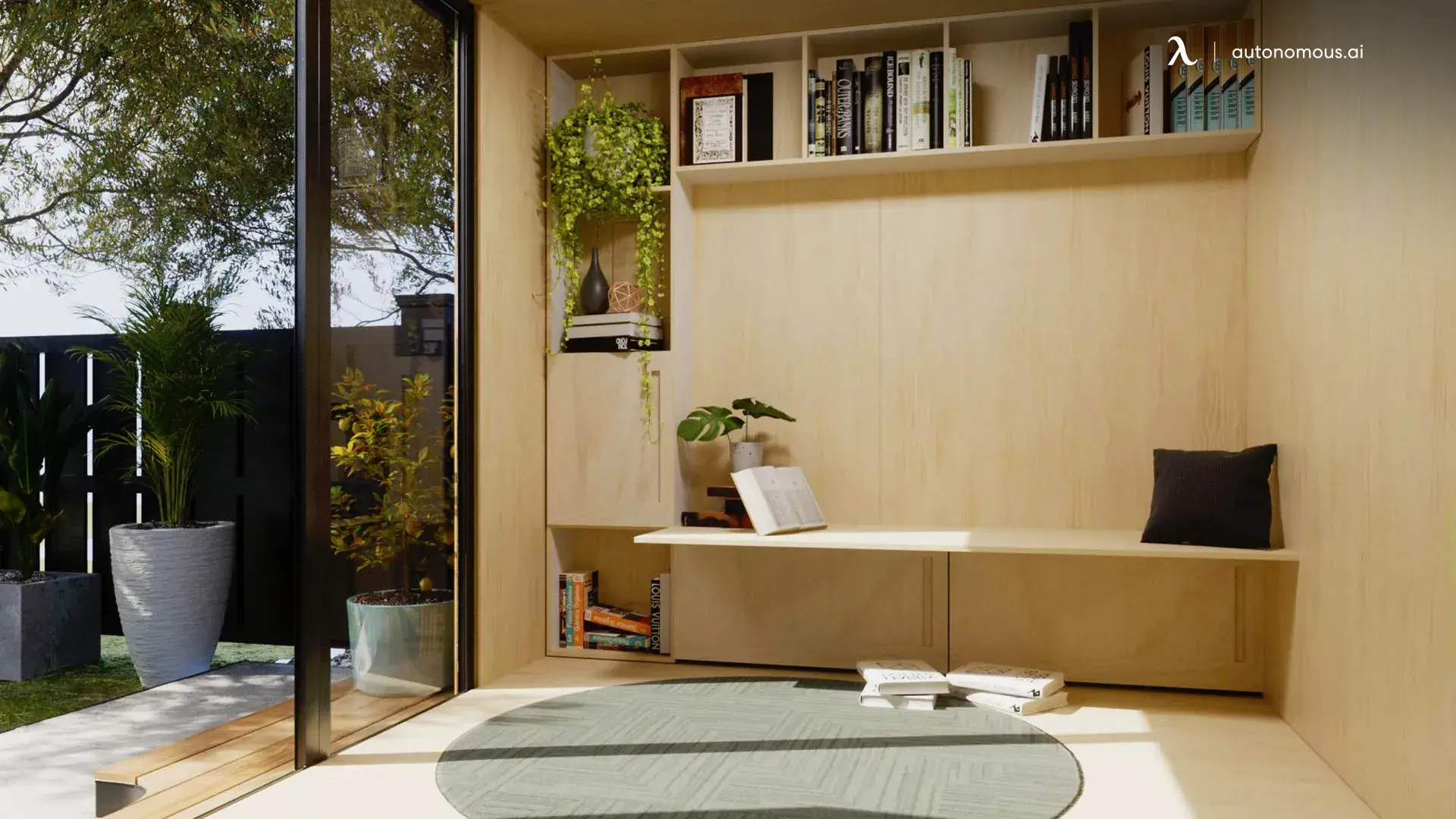
Conclusion
Building an ADU in King County can provide long-term benefits, whether you’re looking for extra living space or an additional source of income. Understanding King County ADU regulations and zoning laws ensures that your project is legally compliant and structurally sound. If you’re considering a detached ADU, pay close attention to King County shed setback requirements and explore prefab options for a quicker, cost-effective solution. Before starting, consult with professionals and check local permit requirements to streamline the process.
Stay connected with us!
Subscribe to our weekly updates to stay in the loop about our latest innovations and community news!
Interested in a Link Placement?
Spread the word
.svg)
.svg)

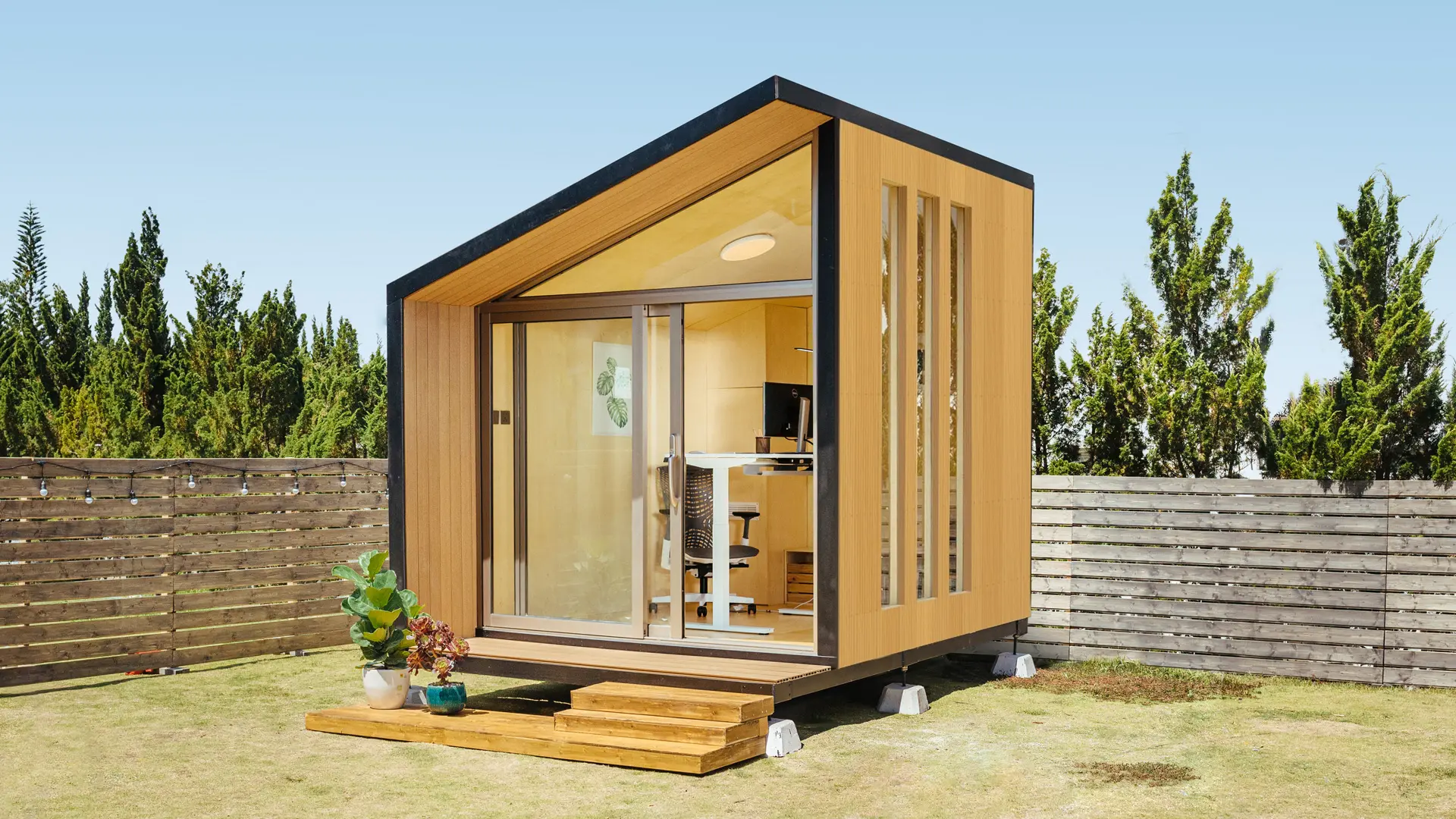

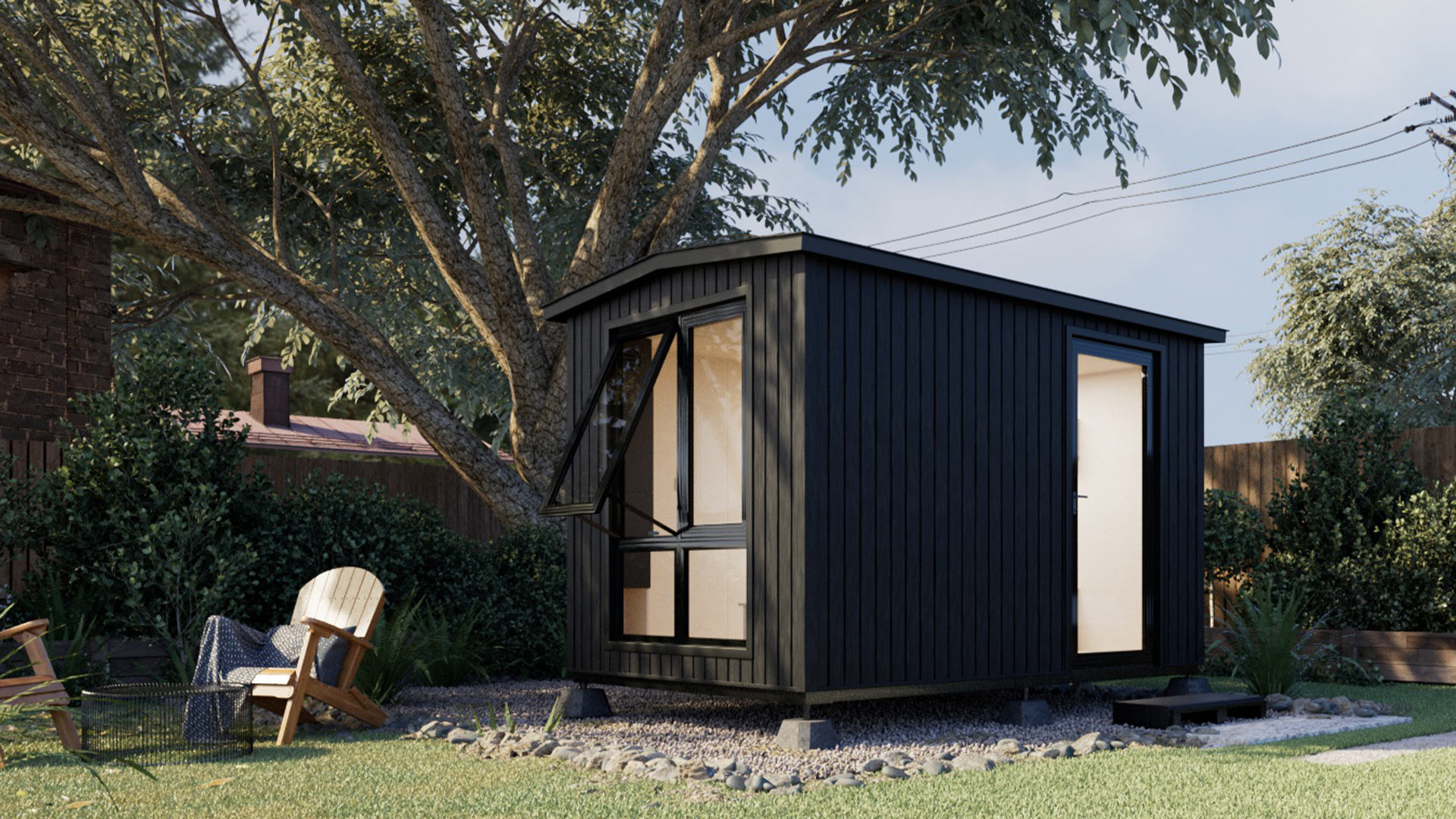
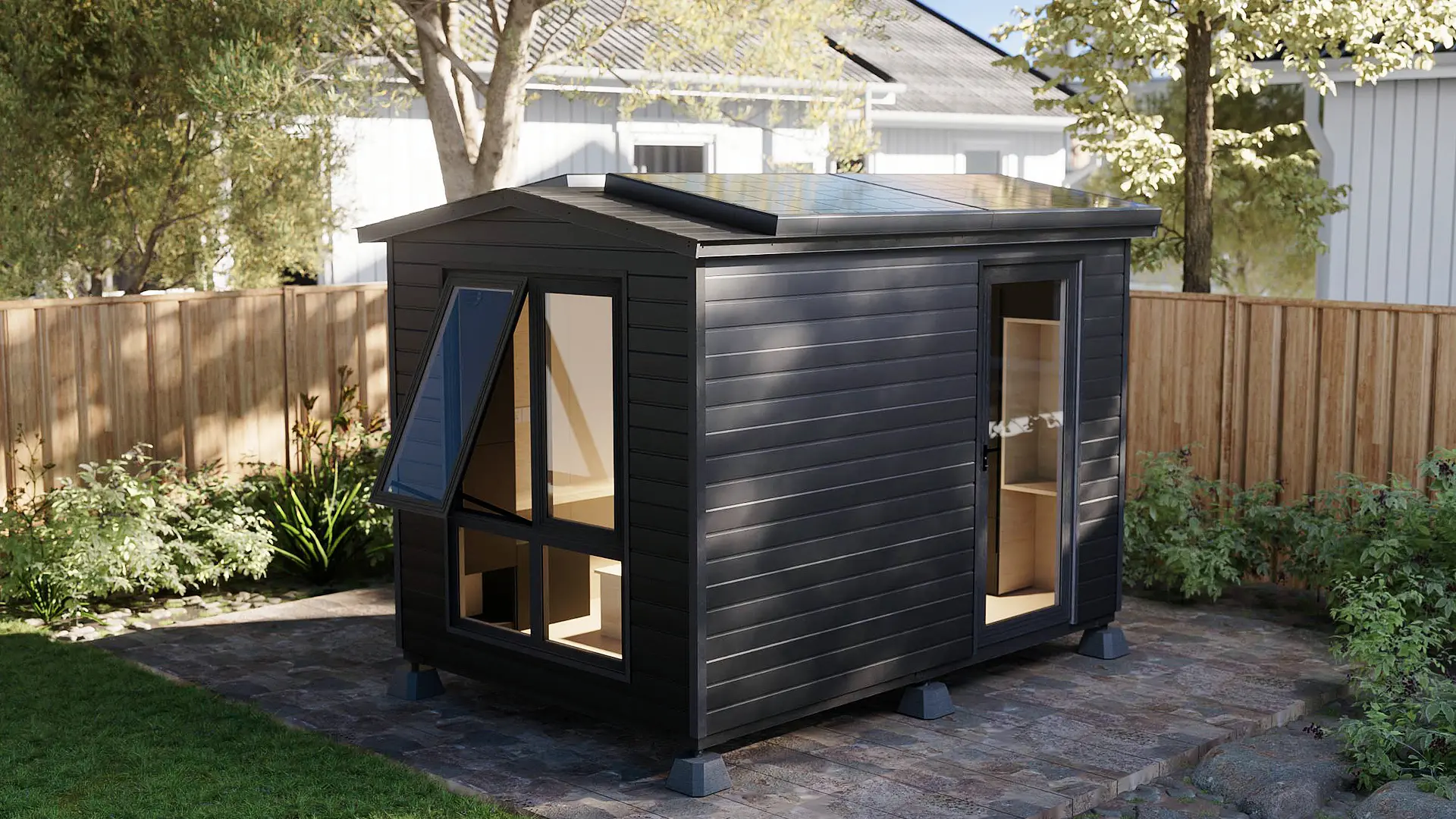

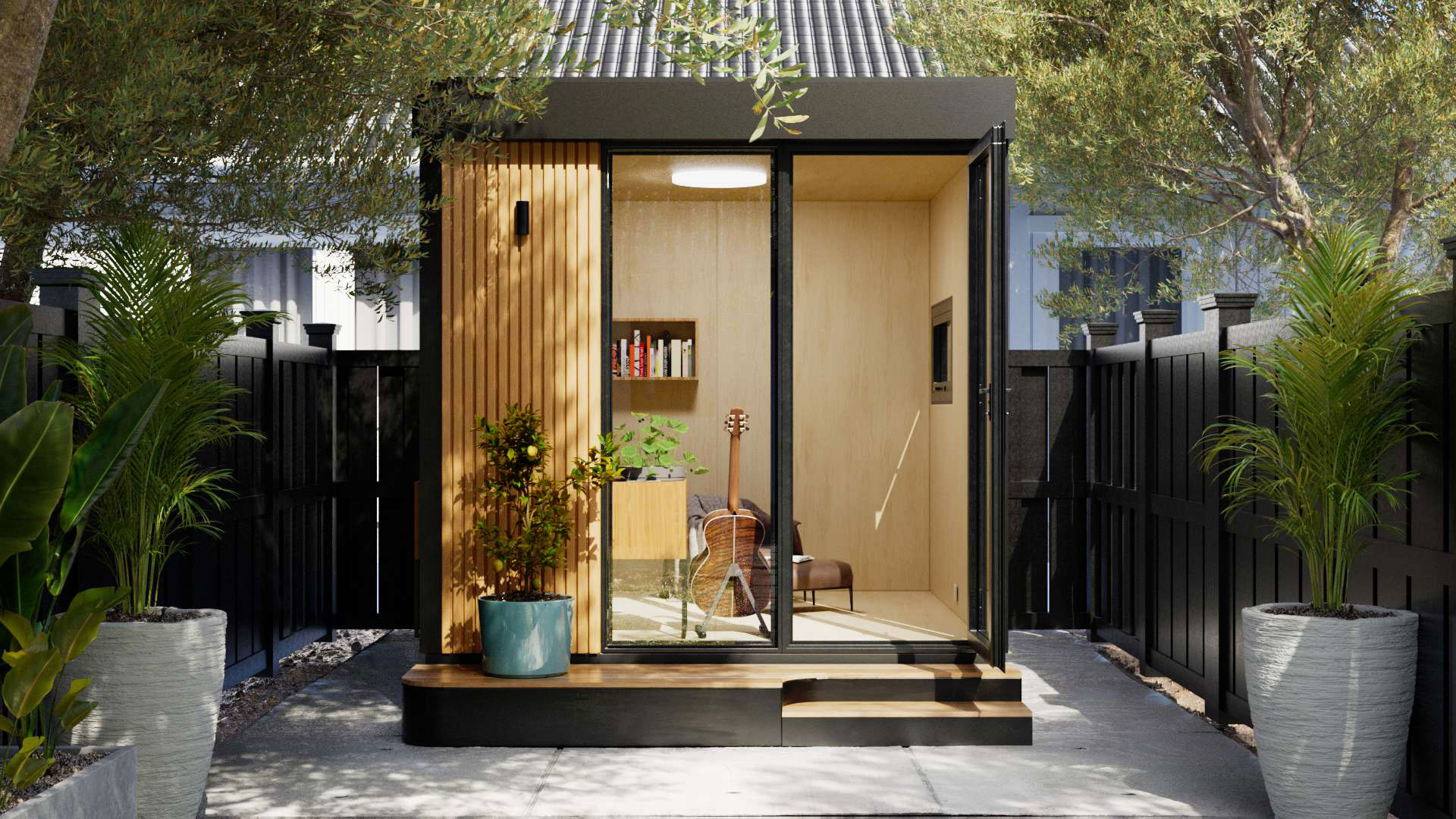


/https://storage.googleapis.com/s3-autonomous-upgrade-3/production/ecm/230914/bulk-order-sep-2023-720x1200-CTA-min.jpg)
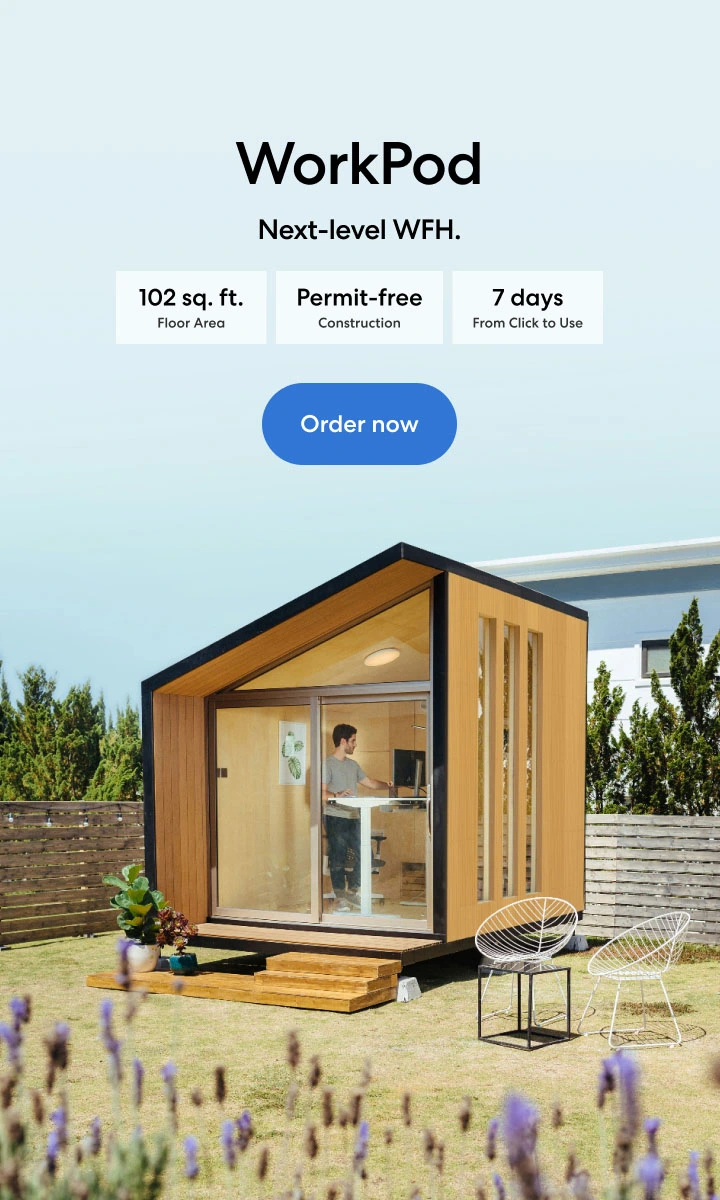
/https://storage.googleapis.com/s3-autonomous-upgrade-3/production/ecm/230824/MichaelThompson-0af2cea9-5dc9-4603-808d-baad10ba1046.jpg)